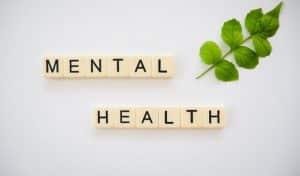Weeding Out Toxicity in Your Life

A toxic relationship can be defined as one that makes you feel unsupported, misunderstood, demeaned or attacked. Sounds familiar? These relationships exist and are more prevalent than most people would like to admit. While many tolerate being in such relationships, those who struggle with mental problems are particularly susceptible because of their sensitivity to negative emotions.
Telltale signs of toxic relationships
They are agents of manipulation and control
Toxic people are capable of sending you into a mental whirl of doubt, confusion, anxiety and worry with the things they say or do. Many a times you end up wondering what you did wrong and how to please them. They have the ability to make you feel that you owe them something and no matter what you do, they will never be pleased. This takes a toll on your self-esteem and because you often give more than you are getting, you will feel under-valued and depleted.
The relationship feels imbalanced
You cannot rely on them and they may not be there when you need them. However, they can guilt trip you to think that you are in their debt. They don’t provide support or comfort and situations have to work to their benefit. Eventually you will feel disrespected and your needs are left unmet.
Absence of apology
Toxic people refuse to say sorry. This word ‘sorry’ is an abomination and it doesn’t slip out of their lips. Their self-centeredness blinds them from seeing their own faults and failures, and they will resort to twisting the situation, resulting in your self-doubt. You are always in the wrong instead. In situations like these, you will feel depressed, angry and exhausted.
Everything is on their terms
Sometimes you are waiting to hear from them, but they won’t reply. They are quick to be absent and their personal space means more than anything. Furthermore, they will use you to get what they want, through cunning ways or coercing. The consequences or repercussions in that process may affect you, but they will not think twice about it.
You are constantly trying to prove yourself
Your successes are diminished or unrecognised, and someone else’s effort is always better. Yours are inconsequential and your hard work hardly counts. Their lofty standards put you in a state of trying to impress them but you will never hit the bar. This can be exasperating and frustrating, and the lack of recognition and reward feed into your low self-esteem.
They project their feelings on you
They may act as though their feelings are yours. They can be angry but won’t take responsibility and accuse you of being angry with them. What lies behind that façade is an undecipherable code – they won’t admit to what they are really feeling. Their manipulative prowess make you believe what they want you to think and when they project their feelings on you, you are left defending or justifying yourself.
Drowning in toxicity
Nothing about the word toxic implies that it could be fine to dwell in it, especially for extended periods of time. The damage is akin to consuming chemicals bad for your body – it makes your sick immediately, and the effects damages your system after ingesting it repeatedly. Here are some very convincing reasons to why you will need to weed toxicity out as soon as you can.
You may experience low self-esteem
When you are constantly being put down, your feelings unvalidated, you will start to doubt and question your own abilities. Your lack of confidence will lead to depravity in self-belief and even self-love.
Negativity will consume you
Toxicity spirals you down into negativity and the negative energy saps you and the people around you. The broken lens which you now see the world through exposes you to consistent negative headspace trauma.
You are at risk of anxiety and stress disorders
All these toxicity and negativity cause mental strain and stress. You could even plunge into depression or have your depressive state of mind worsened.
You get isolated from healthier relationships
It’s natural for you to build a wall between you and everyone else when you are constantly in a negative environment. Otherwise, you might be so enraptured in the toxic relationship you are too preoccupied to spend time with others who could be healthier for you. This disconnect restricts you from reaching out to more empowering or supportive relationships.
Your health suffers
Mental stress leads to an increased risk of developing heart problems, higher blood pressure, weakened immune system. You may also experience low energy and fatigue.
You neglect self-care
You might eventually stop taking proper care of yourself because of your mental state and negative emotions. Your sleep routine suffers, workout schedule gets disrupted and even your personal hygiene may deteriorate.
Coping Strategies
Recognising that you are dealing with a toxic person is the first step. The next is to want to make change.
Voice out
The benefit of the doubt is that the person is not fully aware of the impact of their actions. Speak about your concerns using ‘I feel’ when describing your feelings. Speak your truth is a composed and calm manner, and detail the instances or behaviours that are hurting you. Don’t hurl the other person with insults or launch an attack. You are trying to improve the situation, not get into a fight.
Be Firm
Once you are able to identify their manipulative tactics, do not allow them to happen. Stand your ground and refuse to let them have their way. Be assertive and be upfront about your choices and decisions.
Draw lines clearly
Setting boundaries will be an important step if you wish to cut out a toxic person in your life. Eliminate your communication channels to prevent either parties from reaching out to each other. Block or delete them and stop seeing them on social media. If you don’t wish to cut this person out completely, limit the time you might spend together.
Look for support
Frequently it is not easy to cut the person out, especially if it’s a parent or family member. It is then especially important to seek out a support network and surround yourself with people who can boost you up. Reach out to people who are willing to listen and validate your emotions. Speak to a professional, such as a private therapist or counsellor who is able to teach you coping strategies when you start feeling overwhelmed or helpless.
Sources
https://psychcentral.com/lib/11-things-you-absolutely-must-know-about-toxic-people#4
https://www.heysigmund.com/toxic-people/
https://achieveconcierge.com/blog/the-importance-of-cutting-toxic-people-out-of-your-life/
Known as Nate, I am someone who cannot quit wielding the pen or punching the QWERTY, no matter where life brings me. Writing has always been the most effective conduit for channeling my wanted or unwanted opinions since I was an undergraduate at NUS. Naturally, I used this skill as a means of sustenance after working as a writer and editor for many years until I decided to start a business in music. That did not put a halt to my marriage with the vernacular.
In October 2016, I graduated with my Masters in Visual and Media Anthropology, which is the study of cultures through films and photography, at Freie Universität Berlin. This transitory period of residing in two cities has pushed the boundaries of my creativity and my battles with word count have not ceased.
Now a new mode of writing, the academic one, has been added to my existing smorgasbord of corporate and lifestyle collaterals, articles, advertisements, annual reports and books. At the moment, my learning curve is an uphill journey as I attempt to grasp the camera for stills and motion clips, while I juggle that with developing my love affair with my other mode of expression – electronic music.















